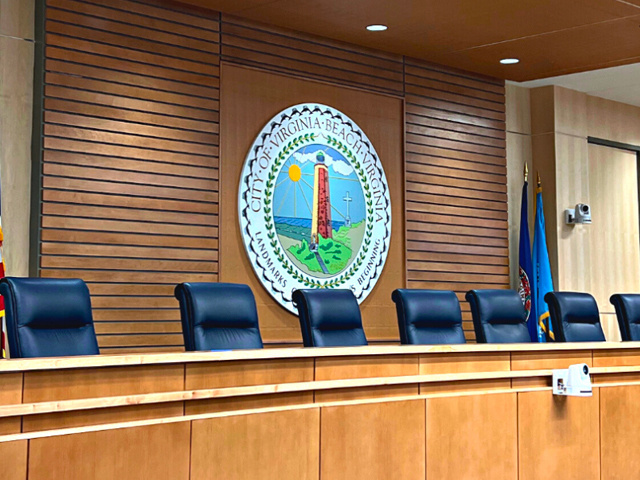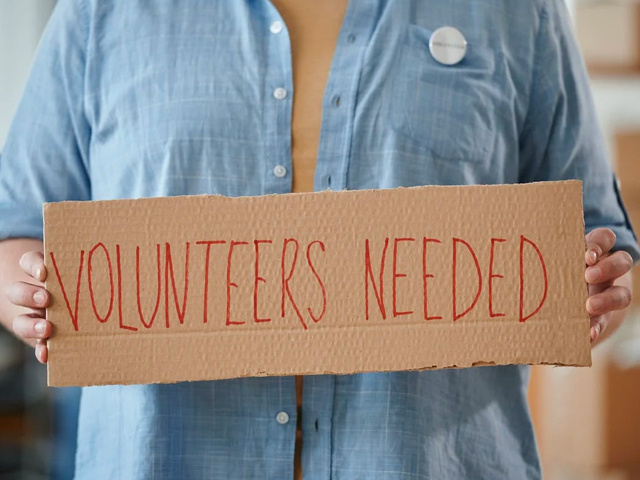Be In The Know
ReadyVB: Be Prepared for Winter Weather
Tips to make sure you and your family are ready for cold, snow and ice.

Because the winter season in Virginia Beach is not as severe as other areas, it can catch residents and businesses here off-guard. When we do get cold, ice and snow, the impacts can be worse, so it’s important to know how to stay prepared for winter weather.
Nor’easters and coastal storms can be as impactful as hurricanes. Find valuable resources, tips and information on how to prepare before, during and after an emergency at VirginiaBeach.gov/ReadyVB.
Virginia Beach Emergency Management is joining efforts to spread information about Winter Weather Preparedness Week for Virginia. The weeklong observance, Dec. 8-12, promotes preparedness and resilience during the winter season.
Winterize Your Emergency Supply Kit
One of the first actions residents should take is winterizing their emergency supply kits for home, vehicle and work. Impacts from severe winter storms could isolate you and your family in your home — or even your car — for several days.
Power outages can affect your ability to heat your home, and you may not be able to obtain food, supplies and other necessities because of road conditions. This is why it’s important to have an emergency supply kit ready in your home, vehicle and work.
The emergency kit should contain supplies such as non-perishable food, medicines and baby items. Plan to have a supply to last at least three to five days for each member of your family, including pets. Some of these items may already be in your home from your hurricane kit.
In case of power outages during these colder months, consider having extra blankets and warm clothing to wear in layers if you are without heat for a few hours.
Winter Emergency Kit
- Flashlight and extra batteries
- Extra food and water such as dried fruit, nuts, granola bars and other food requiring no cooking or refrigeration
- Extra prescription medicine
- Baby items such as diapers and formula
- First-aid supplies
- Heating fuel: Refuel heating oil before you are empty, because fuel carriers may not reach you for days after a winter storm
- Emergency heat source: Fireplace, wood stove or space heater properly ventilated to prevent a fire
- Fire extinguisher, smoke alarm; test smoke alarms monthly to ensure they work properly
- Extra pet food and warm shelter for pets
Winterize your emergency kits.
Stay Ahead. Stay Informed.
Residents can stay informed during local emergencies including major weather events by signing up for VBAlert. Text “VBAlert” to 67283 or sign up at VirginiaBeach.gov/VBAlert to receive important messages and emergency alert notifications from the City of Virginia Beach and Emergency Management for events affecting Virginia Beach and your community.
Know Your Winter Weather Season Terminology
Watches: Issued when a storm is in its early stage of development and may create conditions that harm life or property.
- Winter storm watch: Issued when heavy snow, dangerous ice accumulation or blizzard conditions are possible. Winter storm watches are typically issued 24-48 hours before a winter storm starts. Watches are issued when at least 3 inches of snow, and/or 1/4 inch or more of ice accumulation is expected in a 12-to-24-hour period.
- Wind chill watch: Issued when dangerously cold wind chills are possible typically in the next 12-48 hours.
Warnings: Issued when the threat of life and property is imminent or has already begun from severe winter weather.
- Winter storm warning: Issued when hazardous winter weather in the form of heavy snow, freezing rain, sleet or any combination is imminent or occurring. Winter storm warnings are typically issued 12-36 hours before the event is expected to start.
- Ice storm warning: Issued when dangerous ice accumulations are expected within the next 12-36 hours.
- Blizzard warning: Issued when sustained or gusty winds of 35 mph or more prevail, combined with falling or blowing snow, visibility of 1/4 of a mile or less, and last for at least three hours.
- Snow squall warning: Issued for short duration intense bursts of snow and wind leading to whiteout visibility and possible flash freezes on roads.
- Wind chill warning: Issued when the combination of extreme cold and winds occur. This combination will result in frostbite, hypothermia or even death when exposed in this type of condition for an extended period. These are issued when wind chill values are expected to be below 15 degrees.
Advisories:Issued for less serious weather conditions that will not cause immediate threat to life and property. Advisories will be issued when weather conditions will impact motorists, outdoor activities or public events.
- Winter weather advisory: Issued for accumulations of snow, freezing rain, freezing drizzle, or sleet that will create inconveniences. During an advisory, if caution is not exercised, life and property may be threatened. Snow accumulation of fewer than 3 inches and any amount of ice accumulation.
- Wind chill advisory: Issued when wind chill temperatures create inconvenience and when they could threaten life with prolonged exposure. If caution is not exercised, hypothermia and frostbite may occur. Issued for wind chill values below 0 degrees but not colder than minus 14 degrees.
Other Winter Safety Tips and Resources
Never run a generator in an enclosed space. Make sure your carbon monoxide detector is working correctly and that the outside vent is clear of leaves and debris. During or after the storm, make sure it is cleared of snow. Home fires are common each winter when trying to stay warm.
Review ways to keep your home and loved ones safe in the event of a home fire.
Emergency Preparedness website: Residents can find more valuable resources and information on emergency preparedness at VirginiaBeach.gov/ReadyVB.
Sign up & Subscribe: In addition to signing up for VBAlert, residents are also encouraged to subscribe to the City of Virginia Beach’s weekly email newsletter, “Be in the Know,” at VirginiaBeach.gov/beintheknow.
The City of Virginia Beach Emergency Management team promotes a comprehensive emergency management program to mitigate Virginia Beach's impacts from man-made, natural or technological disasters. Learn more at VirginiaBeach.gov/ReadyVB.
Keep Reading
See All Posts
February 11, 2026
School Speed Zone Camera Enforcement Program: Automated Monitoring Puts the Brakes on Dangerous Driving
-
Calendar News Blog Hot Topics Multimedia Social Media Mobile Apps










